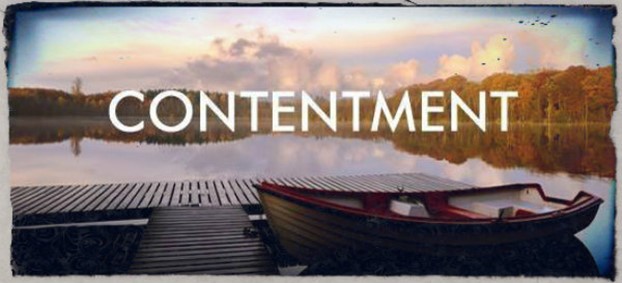
“The only real difference between Anxiety and Excitement was my willingness to let go of Fear.”
-Barbara Brown Taylor-
We’ve been addressing mindset, how to improve it and the benefits of a positive mindset the last couple of weeks with a positive response. Certainly, related to this positive mindset is the subject of contentment and its impact on one’s life. People may have told you at some point in your life that you need to have more contentment. But what does this mean exactly? Not surprisingly, being content is something that will look different for every individual. There are a few similar attributes that content people share, though which we will examine.
Contentment Is Being Grateful
When you have contentment, you are grateful for all the things you have in life. And this doesn’t just mean physical possessions. It also means being content with the people you have in life and less tangible things like your abilities and skills. This is seeing the glass half full, not half empty.
If you struggle with being grateful for the things you have, it may help if you make a list of all the things you are grateful for in life. It would be best if you did this regularly. Sometimes those negative things percolate to the top, and we want to keep those in proper perspective. This way, you will have a visual of all the amazing aspects of your life, and it will help keep these things at the forefront of your mind.
Contentment Is Living in the Moment
Living a life filled with contentment means you spend your time living in the moment rather than dwelling in the past or yearning for the future. When you find yourself thinking too much about the past, it’s time to try to let these regrets and disappointments go.
So, when you find yourself surrounded by friends at an event invest in those relationships. Stop looking in your phone at social media and other things that happened in the past. You need to put your phone down and resolve to enjoy the moment, and whatever may come your way.
Above all else, being content in life means you are happy with things just like they are. Contentment means you don’t need to worry about physical possessions because you know that you have everything you need to be successful and happy.
If acquiring physical possessions is something you frequently do, the next time you find yourself wanting to buy something, ask yourself if you need it or if you want it. Chances are you probably don’t need whatever it is you are about to buy. Buying is often like filling a round hole with a square peg. You’re filling a lack of contentment.
What About When Troubling Times Arrive
Now I don’t live in a panacea of thinking everything is always going great. There are so many things that enter our lives that destroy contentment. Illness, death, loss of job, so many things can erect hurdles in our lives. What do we do then when these obstacles enter our lives? Give up on contentment? No, we need to refocus, go back and focus on our mindfulness, and rebuild that contentment in our lives.
In conclusion, contentment means many different things to people, but in general, being content means that you are grateful for what you have, that you live in the moment, and that you are overall happy with the way your life is going. The road to achieving contentment won’t always be easy, nor consistent, but you can guarantee you will be happy when you get there.
So, the connection to interviewing in the arena of inspection, auditing, and investigations is the same as many of these areas of psychology and well-being. Always remember that the interview room is but a microcosm of society and all the same principles apply. The application is to both the interviewer and interviewee.
We need to apply these to how we present ourselves as well as to consider the perspective and station of the person we are talking to. Knowledge of this and its application should help how we engage and interact in the interview room and will influence how we present ourselves as well.
If you struggle with contentment, mindfulness, etc. in your own life, maybe you should consider finding someone to confide in and share with. One of the biggest faults we have in the audit and investigation business is we often operate in a vacuum. The past several years and COVID has exacerbated this as well, causing us not to have mentors and colleagues to bounce feelings and concepts off. We are not created to operate this way and research clearly shows that we are much more effective when we collaborate.
When it comes to finding contentment have you considered whether you consistently seek to find it. Or do you care about this enough (see a few weeks’ past blog on having passion)? Do you plan for opportunities to find mindfulness and contentment? If not, why not?
Anderson Investigative Associates is positioned to custom-tailor training to your specific needs. If you have any questions or would like to discuss the above issues of mindfulness and contentment, please reach out. Additional issues pertaining to interviewing, auditing, and investigations can be found in other blogs and videos that we have produced and are contained in most blocks of instruction that our company presents.
If you have additional questions, comments, or have an interviewing topic you would like me to address, give me a shout. In the meantime, be well, stay safe out there, and find a way to find contentment….it will make all aspects of your life better.
Mark A. Anderson
Director of Training and Development
Anderson Investigative Associates, llc
114 Loucks Avenue
Scottdale, PA 15683
manderson@andersoninvestigative.com
tel:912-571-6686
.
